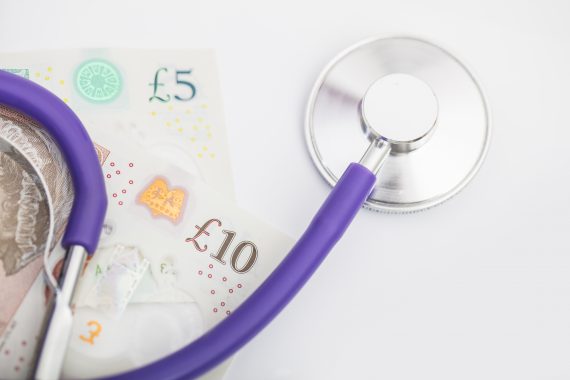Exclusive Funding for local enhanced services and other local GP initiatives has failed to rise significantly in recent years, with local commissioners having set aside just 1.3% of their own budgets for these activities in 2018/19, Pulse can reveal.
CCGs – which provide funding for LES and other local GP services – chose to invest 1.14% of their budgets in general practice in 2015/16, according to responses from 41 commissioners to a freedom of information request by Pulse.
But this investment only rose to 1.31% by 2018/19, which GP leaders have said is ‘not even close’ to what is required.
At the same time, the proportion of the NHS budget used for GP core contract work fell for the third time, to 7.1% of the total NHS budget in 2018/19.
But NHS England said total investment in general practice has increased by over £1.74bn ‘in the four years since NHS England took on responsibility for commissioning’.
The Pulse investigation found that in 2015/16, the CCGs spent 1.13% of their discretionary budgets on general practice – not including where they receive money from NHS England to administer the core contract under co-commissioning. By 2016/17, this rose to 1.24%; 2017/18, this was 1.47%; and this financial year it has dropped to 1.31%.
This year’s figure is only a slight increase on the proportion they spent in 2016/17 – when NHS England announced its GP Forward View, stating CCG investment for GPs was expected to rise.
GP leaders said acute services were often still being given priority for investment by CCGs, and in some cases reported cuts to funding for locally commissioned GP services.
Doncaster LMC medical secretary Dr Dean Eggitt told Pulse: ‘For all the rhetoric nationally about the GP Forward View, and moving care from the secondary to primary sector – and resources moving with that – that is not yet happening’.
He said that in his area, there had been reductions to funding for locally commissioned services.
He said: ‘One local enhanced contract has changed… it has had a 95p per head of population cut in its value, so we are doing the same work but getting paid less.’
He said the 1.3% of CCG budgets spent on general practice revealed by Pulse’s investigation was ‘not even close’ to what was required.
Dr Peter Swinyard, Family Doctor Association chair, added: ‘The average small practice is losing all sorts of things, such as seniority allowances, minimum practice income guarantees, all sorts of enhanced services that are not being commissioned by CCGs.’
He said: ‘If you take my little practice, we’ve lost the equivalent of a full doctor’s worth of funding over the past five years. We can’t provide the service that we would like to provide and this means the patients don’t get the service they would like to receive’.
Surrey GP Dr Joe McGilligan, a former chair of NHS East Surrey CCG, said: ‘General practice hasn’t got a core offer. You can’t count the widgets of primary care.
‘You can’t say you’ve prevented this many illnesses, saved this many lives.’
Meanwhile, further analysis by Pulse has also shown that while NHS England investment in core GP work – including the national contract, the QOF and national enhanced services – has been rising, this has failed to keep pace with overall NHS budget increases.
This has meant the proportion of NHS England’s budget spent on GP core allocations has been decreasing – from 7.31% in 2015/16 to 7.13% in 2018/19.
In response to Pulse’s investigation, NHS England said it was ‘on track’ to ensuring general practice received an extra £2.4bn a year by 2020/21, as per its pledge in the GP Forward View.
It also claimed that by 2016/17 it had almost reached its other goal of ensuring the proportion of funding going into general practice rises to 10% by 2020/21.
It said this was due to a number of other funding streams that were available to the profession, such as Health Education England funding for GP training, NHS England capital funding and drug cost reimbursement.
An NHS England spokesperson said: ‘Total investment in general practice has increased by over £1.74bn to £10.204bn in the four years since NHS England took on responsibility for commissioning.
‘And NHS England is on track to reach the promised £2.4bn increase a year in 2020/21 which will see investment rise to over £12bn, a 14% increase in real-terms.’
Pulse October survey
Take our July 2025 survey to potentially win £1.000 worth of tokens














